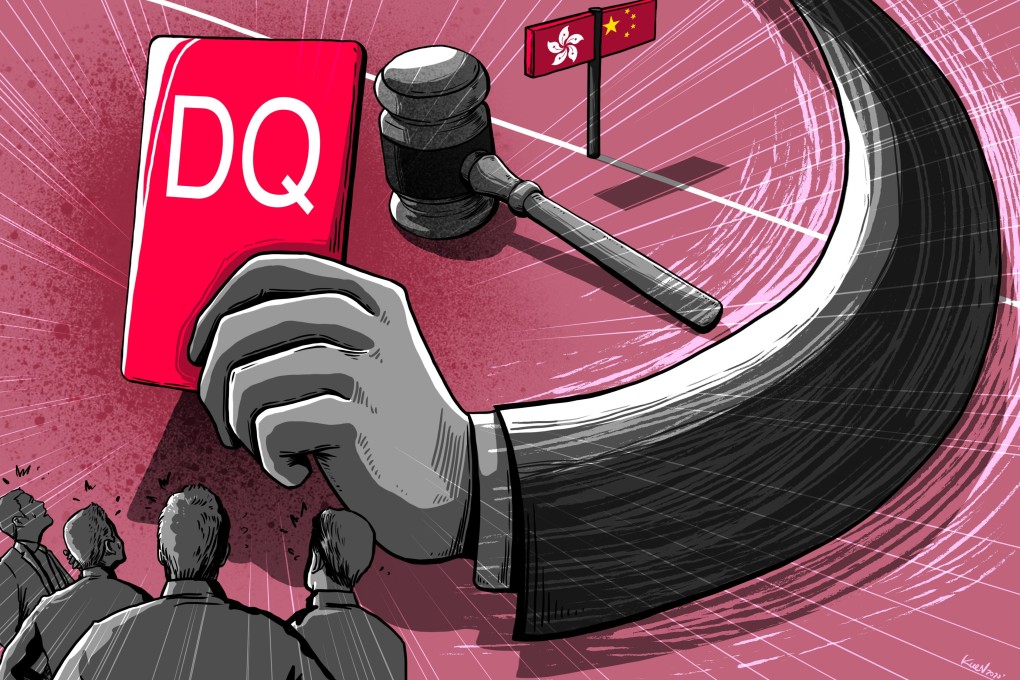Advertisement
Why pundits are split over Hong Kong leader Carrie Lam’s call for help from Beijing on disqualification of lawmakers
- Chief executive insists the move had nothing to do with filibustering by opposition in legislature
- Beijing’s resolution, and Lam’s resulting amendments, may have far-reaching impact on city’s political and legal systems, some analysts say
Reading Time:4 minutes
Why you can trust SCMP

Hong Kong leader Carrie Lam Cheng Yuet-ngor confirmed on Wednesday that it was she who asked Beijing to clarify how lawmakers could be disqualified, because there was confusion over whether legislators banned from seeking re-election could serve out their extended term.
Lam also said the move had nothing to do with filibustering and that the government would amend relevant constitutional and electoral regulations to align them with the resolution issued by China’s top legislative body on Wednesday.

01:28
Carrie Lam comments on the removal of four Hong Kong opposition lawmakers
Carrie Lam comments on the removal of four Hong Kong opposition lawmakers
But her remarks left Hong Kong and mainland Chinese scholars divided over which side initiated Beijing’s latest intervention in the city’s political affairs and the reasons behind it.
Advertisement
While mainland Chinese academics said it was opposition lawmakers’ filibustering that forced Lam to seek help, local pundits believed the central government had had enough of the pan-democrats’ antics.
And while some legal experts said Beijing’s move, as well as Lam’s follow-up amendments, could have a far-reaching impact on the city’s political and legal systems, others believed it was too early to say.
Advertisement
The top legislative body endorsed a resolution on Wednesday to give local authorities the power to remove politicians without having to go through the city’s courts, resulting in four lawmakers being unseated almost instantly.
Advertisement
Select Voice
Select Speed
1.00x